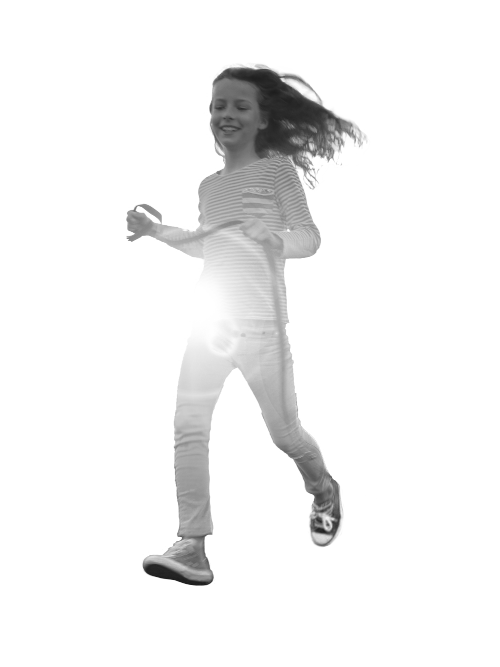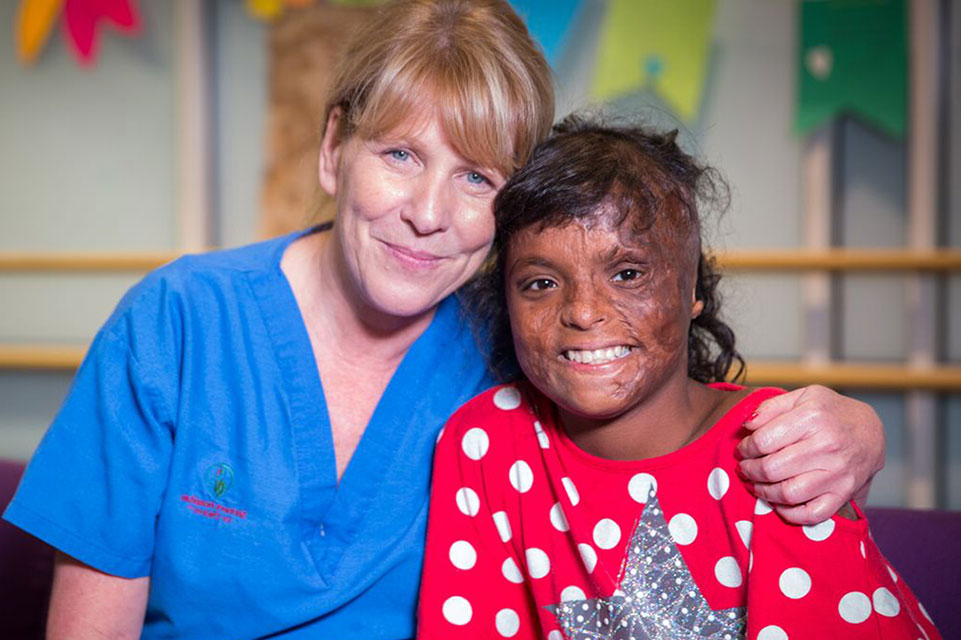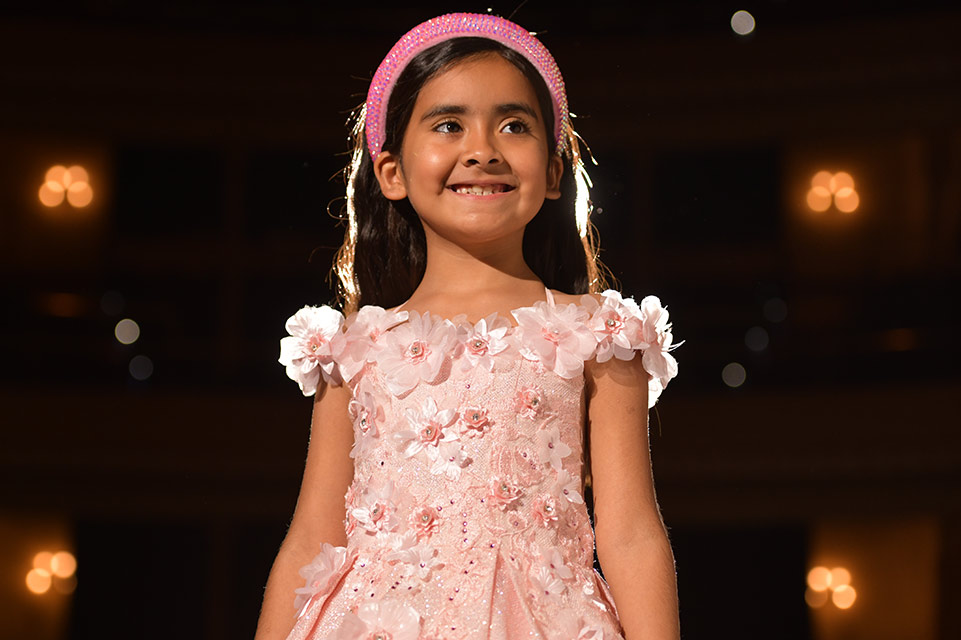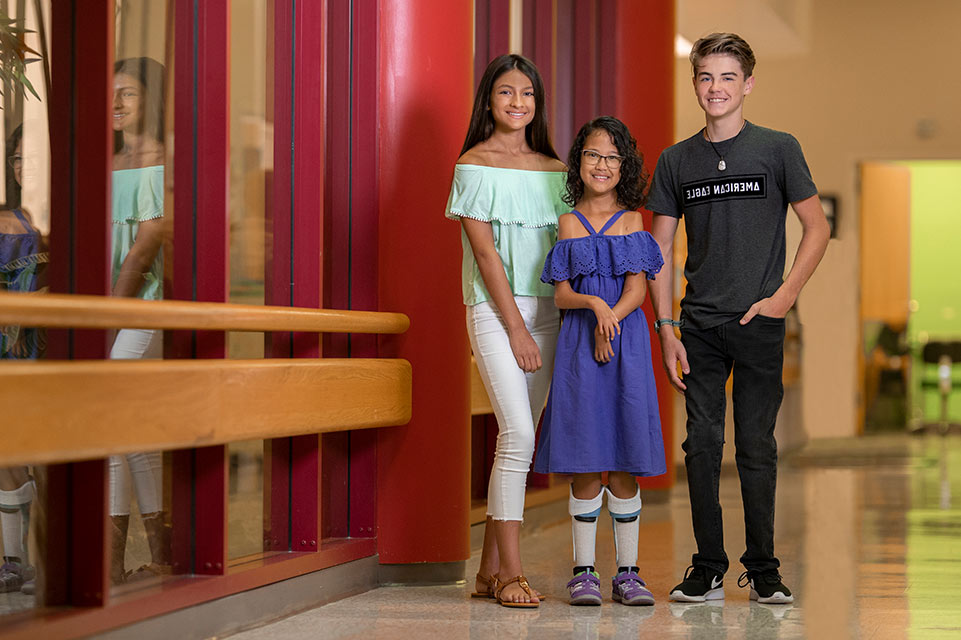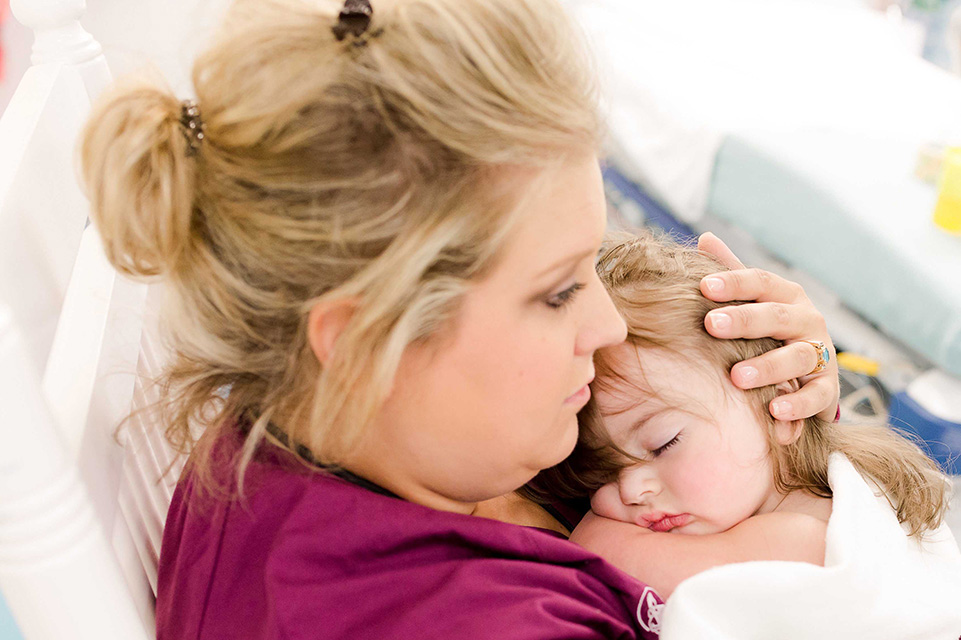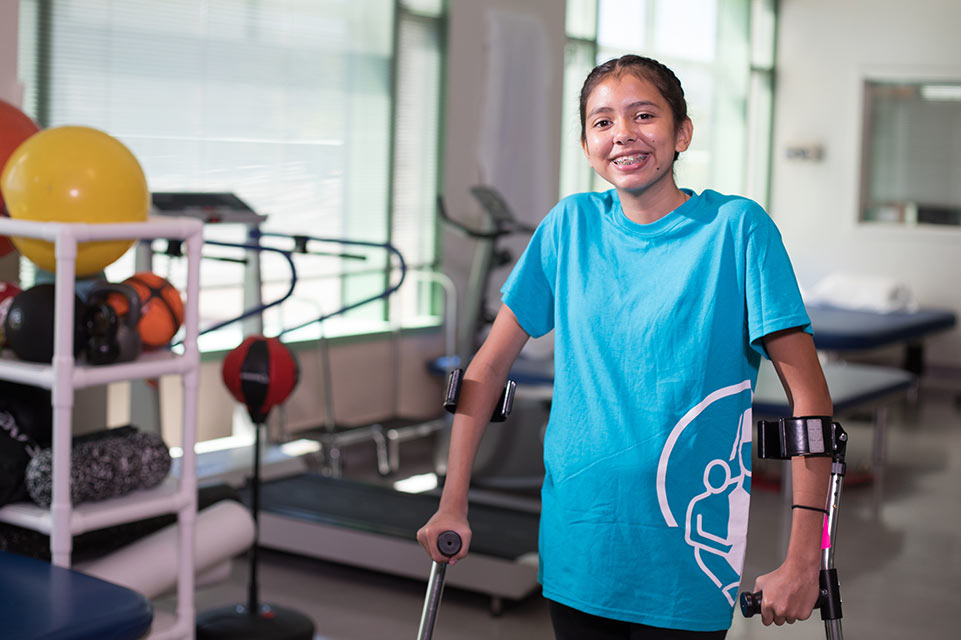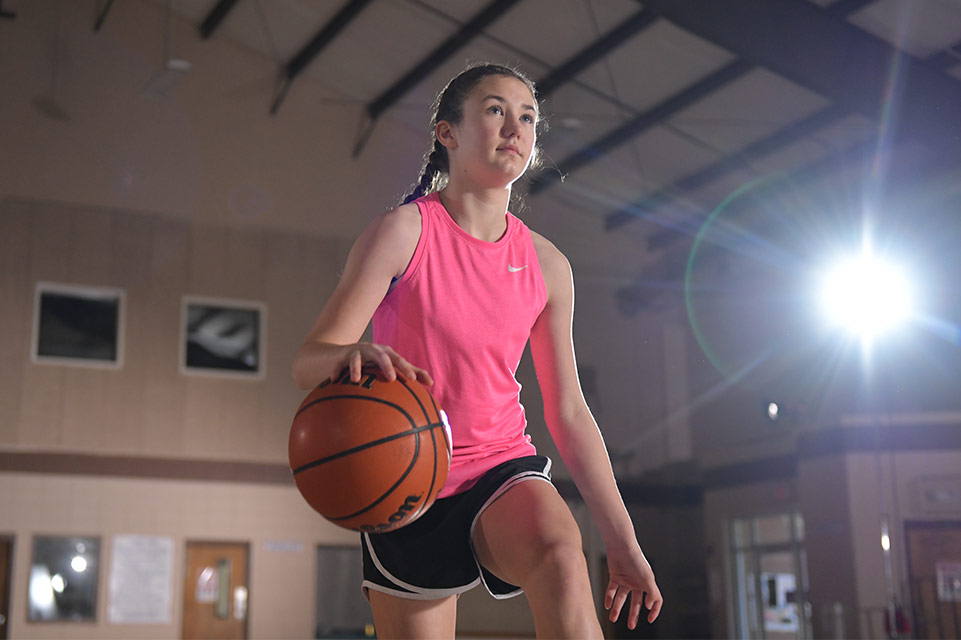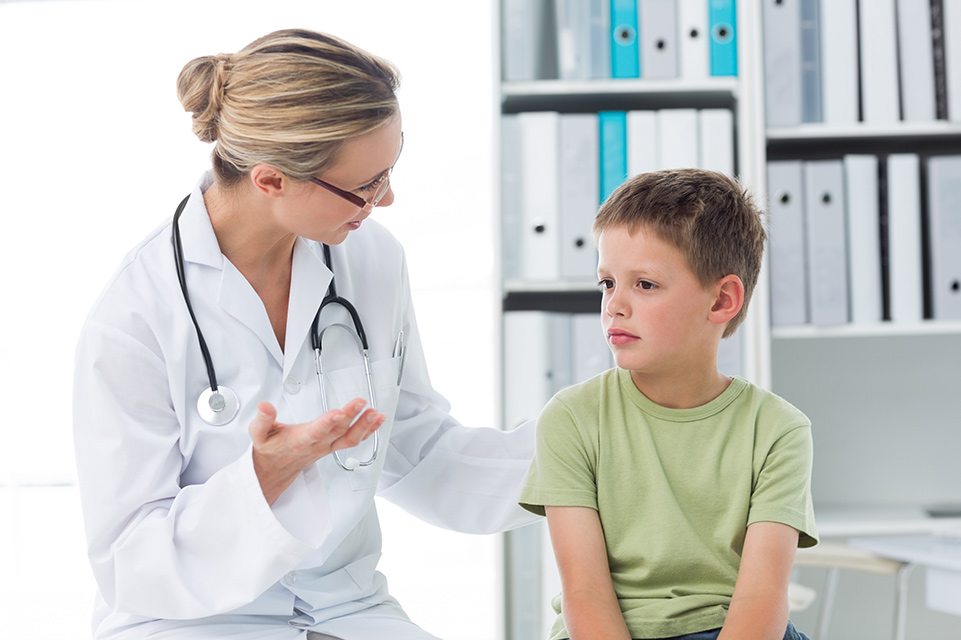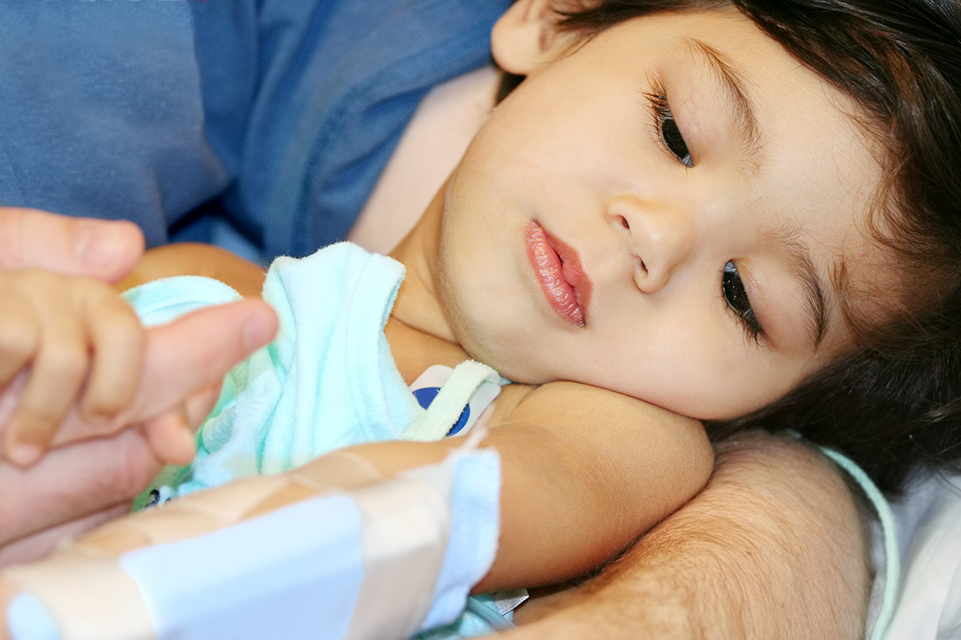- [Fran Farley] Shriners Children's provides the highest level of specialized pediatric orthopedic care. Our children's orthopedic hospitals, clinics and other outpatient locations are home to a world renowned team of board certified pediatric orthopedic surgeons. These are physicians who have devoted their careers to transforming children's lives. We are committed to providing progressive treatment options anchored in the latest groundbreaking research.
- [Michelle James] Well, pediatric orthopedics is the care of kids musculoskeletal conditions. So virtually anything involving their joints, their bones, their muscles. We see kids with congenital malformations, things they were born with. We see kids with injuries, fractures, or sports injuries. And then we have, sort of, the body part divisions, you know, surgeons who take care of the spine, surgeons who take care of hands and upper extremities.
- [Claire Beimesch] We treat a variety of issues in kids and we treat fractures. We do treat cerebral palsy and spina bifida. And then we treat kids with simple things like in-toeing or genu varum or bow-leggedness. So we really see the gamut, I mean, pediatric orthopedists are the last general orthopedic surgeons we like to say.
- [Kevin Martin] Kids who come here view this as a life experience, not a one-time event. They become part of our team, part of our family. We can follow them from infancy clear until they're adults and help to transition them into adult healthcare.
- [Rolando Roberto] Scoliosis is a curvature of the spine. The most common type we see is the idiopathic type. We can cure congenital scoliosis with small estuaries when the kids are small to prevent them from becoming again, kind of, in the more life-threatening spinal deformities.
- Our main goal here is to take care of the patients that have sports related injuries, chronic injuries or deformities that may need some stabilization or things that will allow them to return to sports and athletic participation.
- [Kristin Maguire] Hospitals can be scary places for kids and we help them through those difficult challenges whether it's just a regular appointment and providing some toys that help ease the stress because play is a universal language for kids. You wanna make a difference in their lives and in their family's lives. I mean, we help parents also and siblings that come. It's a family centered approach that we have.
- It's definite team approach. So certainly if there's a child who's interested in doing a limb length, having a limb deformity surgery, we actually have them come on a special day where they meet the whole team. And then we all sit down together to discuss what issues this patient may encounter and how we as a team can help them through this process.
- [Fran Farley] All patients and families, regardless of their medical condition or needs can expect to benefit from the experience of a multidisciplinary team dedicated to the needs of your child. Our staff helps ensure patients receive an optimal outcome by providing all aspects of care including rehabilitation, treatment, support, and education, following all necessary protocols to ensure families have a safe and positive experience. We all want what's best for our children. So I encourage you to explore the care options Shriners children's offers. Learn about our innovative approach to pediatric orthopedics and our internationally recognized doctors. I truly believe there isn't a healthcare system out there like ours.

